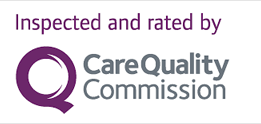CORONAVIRUS INFORMATION PACK
WHAT WE NEED YOU TO KNOW
In this pack, you will find information such as the measures all staff and service users should take to ensure the risk of spreading the virus, what to do if you’re concerned that someone has symptoms.
Should have any questions, or would like further information or clarification, please do not hesitate to contact us.
At Committed2Care, we will make every effort to ensure that safe, effective procedures are in place for staff and Service Users, as well as the wider community in an effort to help prevent the spread of Coronavirus (COVID-19), protect the NHS, and save lives.
As the spread of the virus is resulting in response requirements changing daily, we at Committed2Care Ltd will ensure we stay up to date with reliable sources of information and have the flexibility to respond when required.
We recognise that the outbreak of a new strain of coronavirus SARS coronavirus-2 (SARS-CoV-2) which results in the disease COVID-19 is a fast-moving situation. The World Health Organisation (WHO) has stated that this is now a pandemic. As care providers, ensuring robust infection control and business continuity plans form part of preparing business at Committed2Care Ltd for any events that can cause disruption to the normal business.
Committed2Care Ltd will ensure that staff are aware of and understand the importance of pandemic preparedness and will carry out preparations by following the checklist in the Pandemic Policy and Procedure at Committed2Care Ltd. We understand that business continuity planning involves all aspects of the business and, to be effective, we must work with our partners, suppliers and commissioners to ensure that a safe and effective service can be maintained.
We also understand that we have a responsibility for ensuring that staff follow good infection control and prevention techniques, and that we support Service Users with this, too. We will ensure staff have access to reliable information to reduce anxiety and dispel any myths and inaccurate information that may cause worry or distress to staff, Service Users or the wider public.
Reducing the Risk of Contracting or Spreading the Virus
Committed2Care Ltd will ensure that staff, when not at work, follow the WHO and Public Health England advice to reduce the risk of contracting the virus as well as the risk of spreading it. We will also support Service Users to follow the government requirements and remind them that failure to follow this can result in a fine.
You can only leave your home:
- To shop for basic essentials – only when you really need to
- To do one form of exercise per day – such as a run, walk or cycle, alone or with people from your household
- For any medical need – for example, to visit a pharmacy or deliver essential supplies to a vulnerable person
- To travel to and from work – but only where this is absolutely necessary and working from home is not an option
Further measures:
- Wash your hands regularly and properly for at least 20 seconds using soap and running water. Do not use shared towels to dry your hands – use a paper towel or clean towel.
- Use hand sanitizer when it is not possible to wash hands with soap and water. Hand sanitizer must contain 60% alcohol to be effective. Let this dry on your skin before you touch anything
- Maintain at least 2 metres (6 foot) distance between you and anyone else unless carrying out care duties which require close or physical contact. If you are too close, you can breathe in the droplets, including the COVID-19 virus if the person coughing has or is carrying the disease
- Avoid touching eyes, nose and mouth. Hands touch many surfaces and can pick up viruses, even when gloves are worn. Once contaminated, hands can transfer the virus to your eyes, nose or mouth. From there, the virus can enter your body and can make you sick
- Practice respiratory hygiene. Make sure you, and the people around you, follow good respiratory hygiene. This means covering your mouth and nose with your bent elbow or tissue when you cough or sneeze. If you do not have a tissue, use your sleeve. Then dispose of the used tissue immediately and wash your hands, or use hand sanitiser if you do not have immediate access to soap and running water. Droplets spread virus. By following good respiratory hygiene you protect the people around you from viruses such as cold, flu and COVID-19. Clean clothes should be put on at least once per day. If you are leaving the house for a purpose deemed “essential”, shower/bath on your return home if possible, and put worn clothes straight in to wash. Staff delivering care services should wear clean clothes for each shift.
If you have a fever (37.8 degrees or above) a new persistent cough, or new shortness of breath, you must self isolate for 7 days. The NHS advice below must be followed;
- If you have symptoms of coronavirus infection (COVID-19), however mild, stay at home and do not leave your house for 7 days from when your symptoms started
- If you live with someone who has symptoms, you will need to stay at home for 14 days from the day their symptoms started. This is because it can take 14 days for symptoms to appear
- If more than 1 person at home has symptoms, stay at home for 14 days from the day the first person started having symptoms
- If you get symptoms, stay at home for 7 days from when your symptoms start, even if it means you are at home for longer than 14 days
- If you do not get symptoms, you can stop staying at home after 14 days
Social Distancing
Social distancing measures are steps you can take to reduce social interaction between people. This will help reduce the transmission of coronavirus (COVID-19).
- Avoid contact with someone who is displaying symptoms of coronavirus (COVID-19). These symptoms include high temperature and/or new and continuous cough
- Avoid non-essential use of public transport when possible
- Work from home where possible. Your employer should support you to do this. Please refer to employer guidance for more information
- Avoid large and small gatherings in public spaces, noting that pubs, restaurants, leisure centres and similar venues are currently shut as infections spread easily in closed spaces where people gather together.
- Avoid gatherings with friends and family. Keep in touch using remote technology such as phone, internet, and social media
- Use telephone or online services to contact your GP or other essential services
Everyone should be trying to follow these measures as much as is practicable.
We strongly advise you to follow the above measures as much as you can and to significantly limit your face-to-face interaction with friends and family if possible, particularly if you:
- are over 70
- have an underlying health condition
- are pregnant
This advice is likely to be in place for some weeks.




